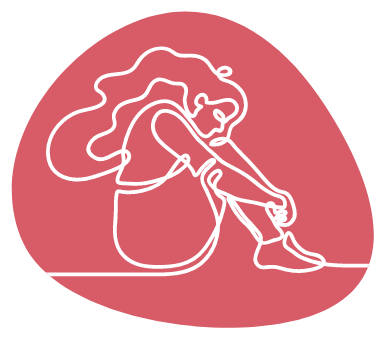
1. Lived Experience
Using creative approaches in arts and humanities to capture young people’s unique experiences of living with an eating disorder.
This work stream aims to understand in particular the experiences of those who do not feel represented by the current ED narrative, co-creating their own stories, told in their own way.
Research investigating the lived experiences of people with eating disorders often overlooks those with different eating disorders and different identities. This includes, for example, culturally, ethnically and linguistically diverse groups, gender and sexual minorities, those with higher BMI, lower socioeconomic status, those not in education, employment or training (NEET), and those living rurally. We recognise that eating disorders affect people from all walks of life and stereotypes about eating disorders are core barriers to young people accessing tailored, timely and evidence-based treatments.
This work stream aims to understand and raise awareness of the diverse experiences of those suffering from eating disorders, fostering a more inclusive and less stigmatised narrative. We will co-create accounts of ED lived experience with diverse groups of young people. This will involve interviews, creative workshops and analysis of narratives told through literature and social media.
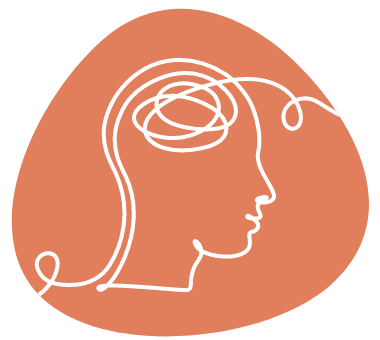
2. Risk and Resilience
Using large cohort data to explore the interplay of risk and protective factors for eating disorders, including unique and shared pathways in different groups.
Little is known about how different biological, psychological, and social risk factors interact to trigger the onset of an eating disorder. Even less is known about risk factors in under-represented groups, including what role marginalisation may play. The more we learn about shared and unique pathways into eating disorders and disordered eating behaviours, the better we can develop targeted early interventions that consider the unique circumstances of each person.
This work stream will use data from six existing cohort studies to develop and test predictive models of risk and resilience for eating disorders. We have chosen cohorts that span the general population as well as those who have been diagnosed with eating disorders. The cohorts we will use are:
IMAGEN is a research project using brain imaging and genetics to examine how biological, psychological, and environmental factors during adolescence may influence brain development and mental health. The cohort consists of 2000 young people and their parents across Europe, followed from the age of 14, with assessments at ages 16, 19 and 22.
STRATIFY and ESTRA replicate the IMAGEN assessment methodology in a clinical population of 500 young people. STRATIFY aims to identify neural mechanisms in mental health disorders, ESTRA aims to investigate the aetiology and underpinning mechanisms of EDs in children, adolescents and young adults. By using both ESTRA and STRATIFY, we can explore the unique and shared risk factors for eating disorders and other mental health problems.
The Eating Disorders Genetics Initiative (EDGI)
EDGI is the UK’s largest ever genetic study of eating disorders, including personality, health and lifestyle factors, and linkage to medical records.
The Avon Longitudinal Study of Parents and Children (ALSPAC)
The ALSPAC is a birth cohort consisting of over 14,000 families with babies born in the Southwest of England in the early 1990s. It has a range of genetic, cognitive, behavioural and ED symptom assessments over repeated time-points, including individual, weight and shape-specific, and general social risk factors. ALSPAC provides an opportunity to delve deeply into the developmental processes underpinning the onset of eating disorders, including experiences in utero and early life.
Understanding Society is a representative panel survey of around 40,000 households across the UK, who were originally recruited in 1991. Households are visited each year and provide data on a range of factors, including body image and weight loss attempts yearly for young people aged 10-15 years. Understanding Society also includes an ethnic minority boost sample to help us explore risk factors that may be specific to these groups. This cohort will help us to understand the onset of high-risk behaviours in the general population.
Millennium Cohort Study (MCS)
The MCS is a nationally representative birth cohort of around 19,000 individuals in the UK. It studies multiple measures of physical, socio-emotional, cognitive, and behavioural development over time, as well as detailed information on daily life, behaviour, and experiences. Alongside this, rich information on economic circumstances, parenting, relationships, and family life is available from both resident parents.
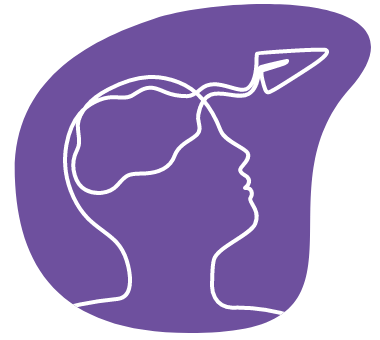
3. Recovery
Using remote measurement technology to explore predictors of chronicity or recovery in those experiencing an eating disorder for the first time.
Recovery from an eating disorder can be a long journey. Discovering the finer details of the recovery process, including different stages and trajectories, and what factors may help or hinder recovery, is an important first step in developing tailored interventions for young people with eating disorders.
This work stream will explore how we can use remote measurement technology (like smartphone apps and wearable sensors), alongside daily self-report questions, to identify changes in behaviour, mood, and social interactions through the recovery journey. We will collaborate with early intervention services for eating disorders (FREED) to recruit a large cohort of young people who have recently developed an eating disorder. We will use the RADAR-base platform to follow these young people, as well as healthy peers, in their everyday life over a period of one year. This will allow us to compare young people with a first episode eating disorder with healthy young people, assess the different recovery trajectories within and across eating disorder types, and identify predictors of recovery or more chronic course.
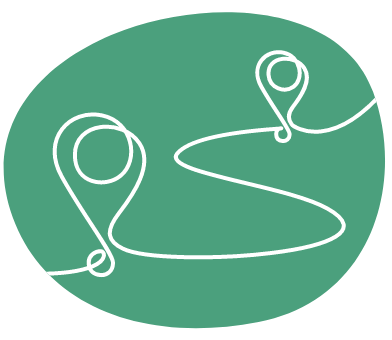
4. Illness Stages and Progression
Investigating how brain and behavioural responses change from earlier to later stages of illness.
A growing body of research suggests that it may be helpful to think about eating disorders as having different ‘stages’. For example, we know that people who have had persistent anorexia nervosa for a longer period of time tend to experience less flexible thinking styles, decreased attention to food cues and to find images of underweight bodies increasingly rewarding, compared with people who have developed the condition relatively recently. These cognitive changes may help to explain why some eating disorders can become more ‘entrenched’ over time, with established treatments being less helpful. Understanding how to characterise early versus later stage illness in eating disorders, as well as the factors that drive change between stages, is essential in being able to tailor treatments effectively.
This work stream aims to expand our understanding of illness stages in eating disorders by comparing cohorts with recent first episode and longer-term illness across both restrictive and bulimic-type disorders. We will use a range of methods including experimental approaches to examine cognition and attention, neuroimaging to consider brain structural and functional differences and self-report measures of symptoms, mood, and life experiences.
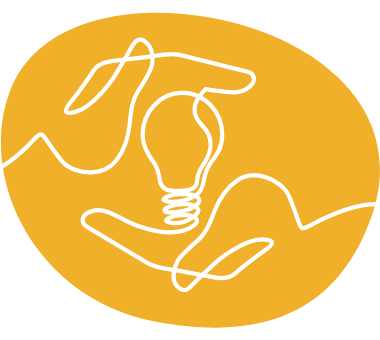
5. Prevention and Early Intervention
Co-designing and testing novel interventions for different eating disorders, including brain-directed treatments for persistent anorexia nervosa.
Many eating disorder interventions aim to target the psychological aspects of eating disorders, such as reducing preoccupation with weight, shape or eating. However, there are many other aspects of illness which may also be promising intervention targets, such as neurobiological factors, about which much less is known. Additionally, little is known about interventions that aim to limit deterioration and restore function in people with persistent eating disorders. Considering that currently only about 30-60% of patients recover fully after a first round of treatment for anorexia or bulimia nervosa, more research is needed to develop second-line treatments.
Neuromodulation (non-invasive brain stimulation) interventions are innovative treatments that are just starting to be investigated for treating persistent eating disorders. Studies in adults have shown promising results: clinical outcomes have been positive, and patients have liked the treatment.
In this work stream we will conduct a trial exploring the efficacy of non-invasive neuromodulation in young people with persistent anorexia nervosa based on our previous work with adults with severe and enduring AN.
The non-invasive neuromodulation used in the trial will be intermittent theta burst stimulation (iTBS), a form of stimulation where magnetic pulses are applied to the scalp in a specific pattern. iTBS is widely used for other mental health conditions and is safe. A range of data will be collected to measure the outcome of the treatment, including illness symptoms, mood, social function, cognition and brain structure and function. This trial has been included at the suggestion of our youth advisors to develop innovative treatments for young people with persistent eating disorders.
In addition to neuromodulation, this work stream will integrate findings from work streams 1, 2, 3 and 4 in order to identify promising targets for new interventions. We will use this ‘roadmap’ to co-design at least two novel intervention protocols for different illness or developmental stages. This might include, for example, a ‘just-in-time adaptive intervention’ that can be delivered remotely via patient’s smartphones.
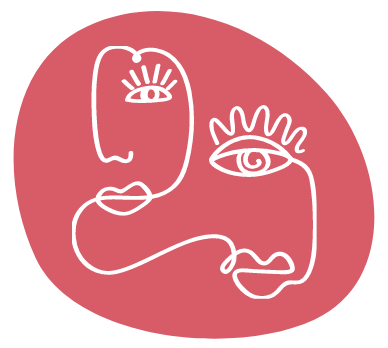
6. Knowledge Mobilisation
The EDIFY programme is focused on generating knowledge, raising awareness, and transforming policy and practice around eating disorders. Work stream 6 will bring together the findings from all other work streams and consider how best to share these with patients, families, professionals and the wider public in ways that bring about genuine changes in the narrative around eating disorders.
In this work stream we will produce creative outcomes aimed at different audiences, including:
- Infographics and data comics
- Resources for young people with eating disorders, carers, and professionals
- Presentations at conferences or educational settings
- Videos and animations about eating disorders
- Policy documents
Additionally, we are excited to be commissioning three arts-based projects, using different media and working in different regions. These will provide creative avenues to fostering a more accurate, compassionate, and inclusive eating disorder narrative, as well as supporting creative talent within local communities. If you are interested in being made aware of the call for proposals when this is released (which will be near the end of this project), please feel free to get in touch on EDIFYresearch@kcl.ac.uk.
Check out our news & events and resources pages for updates!
